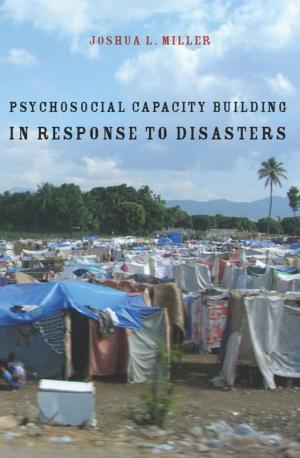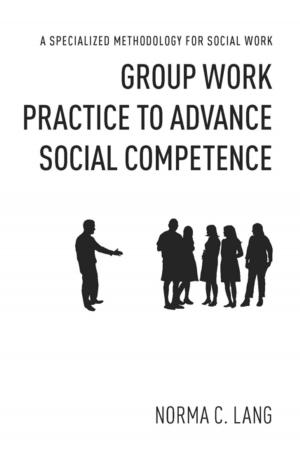Policy Manuals for Nonprofit Organization
Nonfiction, Social & Cultural Studies, Social Science, Philanthropy & Charity, Social Work| Author: | Iqbal Shah | ISBN: | 9781540187154 |
| Publisher: | Iqbal Shah | Publication: | April 19, 2017 |
| Imprint: | Language: | English |
| Author: | Iqbal Shah |
| ISBN: | 9781540187154 |
| Publisher: | Iqbal Shah |
| Publication: | April 19, 2017 |
| Imprint: | |
| Language: | English |
Organization needs to devise policies regarding its ultimate operation towards the realization of its objectives. Strong policies inspire public and donors trust, check and balances power dynamics, help raise funds, lead towards stewardship of organization resources and assets, discourage fraud and minimize errors. Policies are formulated to ensure that organization meets internal and external control mechanism to inspire trust in public and ensure transparency and accountability in its ultimate operation. Policies exist to set direction for organizations, organize staff to handle situations and adhere to certain rules and follow some regulations in the performance of their duties and using organizations’ assets and resources. The book is an inspiring piece of policies literature that are currently in use in the formation and operational plan of NGOs. The book provides for a comprehensive guidelines and principles that are currently in practice in governing the affairs of NGOs. The book expounds on thirteen (13) such policies that drive the direction of organization towards achieving its objectives. The administrative policy aims at setting of rules/principles that shall make the affairs and operation of organization go smooth and to facilitate all other departments in the performance of their duties. The human resources policy provides for a control mechanism that strives for a better congenial workforce environment to ensure better working relationship between employees to employees and employees to employer. The finance policy works towards devising good working finance ethics and code of conduct to ensure organization meet internal control mechanism and external transparency and accountability checks. This grievance procedure is intended to facilitate the effective handling of grievances that may from time to time present themselves in the working environment. The conflict of interest policy ensures that employees and board members avoid such circumstances (potential or actual) that compromise their integrity with regards to their duties in the organization and endorses that employees and board members always keep organization’s objectives and interests over and above their personal interest. The code of conduct policy shall make employees and board members duty destined to observe ethical principles to meet internal control mechanism standards and external transparency and accountability in its operation. Anti-harassment policy makes every effort to provide a working environment free of harassment and intimidation and thus provides for a strict compliance with the rules from employees to observe decency and mannerism. Assets policy keep the organization assets well-maintained, properly entrusted in employees’ hands and thus record is maintained of their physical inventory. It provides for organization’s assets to be properly and legally used and avoid their misuse. The communication policy creates responsible attitude that reflects and represents organization at levels appropriate. It aims at creating attitude and ability to communicate well, responsibly and efficiently on behalf of the organization. The security policy ensures safety and security of organizations’ assets and personnel. The travel policy serves to clarify the means by which travel should be arranged and the parameters that must be adhered to by all employees of the organization. The computer policy ensures the overall computers’ usage, maintenance and data security secure and thus makes it obligatory on all to observe confidentiality of data and proper handling of organization assets. The procurement policy of organization requires strict compliance with rules that ensure transparency and accountability in securing supply to office and project sites.
Organization needs to devise policies regarding its ultimate operation towards the realization of its objectives. Strong policies inspire public and donors trust, check and balances power dynamics, help raise funds, lead towards stewardship of organization resources and assets, discourage fraud and minimize errors. Policies are formulated to ensure that organization meets internal and external control mechanism to inspire trust in public and ensure transparency and accountability in its ultimate operation. Policies exist to set direction for organizations, organize staff to handle situations and adhere to certain rules and follow some regulations in the performance of their duties and using organizations’ assets and resources. The book is an inspiring piece of policies literature that are currently in use in the formation and operational plan of NGOs. The book provides for a comprehensive guidelines and principles that are currently in practice in governing the affairs of NGOs. The book expounds on thirteen (13) such policies that drive the direction of organization towards achieving its objectives. The administrative policy aims at setting of rules/principles that shall make the affairs and operation of organization go smooth and to facilitate all other departments in the performance of their duties. The human resources policy provides for a control mechanism that strives for a better congenial workforce environment to ensure better working relationship between employees to employees and employees to employer. The finance policy works towards devising good working finance ethics and code of conduct to ensure organization meet internal control mechanism and external transparency and accountability checks. This grievance procedure is intended to facilitate the effective handling of grievances that may from time to time present themselves in the working environment. The conflict of interest policy ensures that employees and board members avoid such circumstances (potential or actual) that compromise their integrity with regards to their duties in the organization and endorses that employees and board members always keep organization’s objectives and interests over and above their personal interest. The code of conduct policy shall make employees and board members duty destined to observe ethical principles to meet internal control mechanism standards and external transparency and accountability in its operation. Anti-harassment policy makes every effort to provide a working environment free of harassment and intimidation and thus provides for a strict compliance with the rules from employees to observe decency and mannerism. Assets policy keep the organization assets well-maintained, properly entrusted in employees’ hands and thus record is maintained of their physical inventory. It provides for organization’s assets to be properly and legally used and avoid their misuse. The communication policy creates responsible attitude that reflects and represents organization at levels appropriate. It aims at creating attitude and ability to communicate well, responsibly and efficiently on behalf of the organization. The security policy ensures safety and security of organizations’ assets and personnel. The travel policy serves to clarify the means by which travel should be arranged and the parameters that must be adhered to by all employees of the organization. The computer policy ensures the overall computers’ usage, maintenance and data security secure and thus makes it obligatory on all to observe confidentiality of data and proper handling of organization assets. The procurement policy of organization requires strict compliance with rules that ensure transparency and accountability in securing supply to office and project sites.















